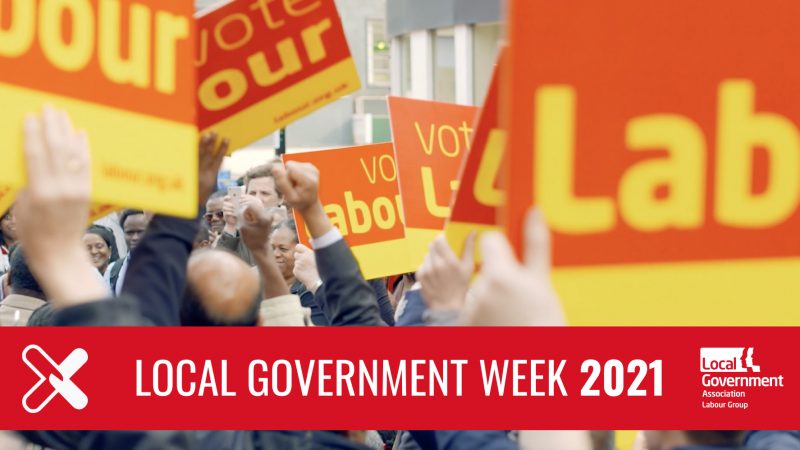
It has been an extraordinary 12 months for all of us. A year ago, we had seen a handful of Covid-19 cases in this country, and in a matter of weeks we were all ordered to stay at home during the first lockdown. Whether it be during lockdowns, when restrictions were eased, or during the introduction of the tier system, Labour councils have consistently shown leadership: doing their best to ensure that communities are protected from the worst of the Covid-19 pandemic.
Labour councils such as Knowsley and Newcastle secured significant amounts of personal protective equipment for frontline workers – including care workers regardless of employer – to protect them whilst carrying out their vital work. Labour councils such as Brent and Islington carried out targeted work around testing, with Brent setting up a testing centre to specifically target frontline workers, and Islington specifically targeting communications around testing to their BAME community, given the lower take-up of testing amongst BAME residents.
Labour councils across the country have also stepped up to help children and their families in recognition of the challenges that school closures face, funding schemes to feed children during the school holidays, and helping children access IT equipment for home schooling – such as Lambeth’s digital inclusion fund.
All of this work shows the important role that councils play in understanding and delivering for their communities in a way that Whitehall cannot. The actions taken by Labour councils have been a visible demonstration of Labour values into action – holding communities together, supporting the vulnerable and working to achieve better outcomes for everyone.
Last April, near the start of lockdown, Keir Starmer was elected as Labour leader, and he is tasked with the job of bringing the party back from one of our worst election defeats ever. His first year in office is marked entirely by the Covid-19 pandemic, but both the Labour Party and local government must look to the future and what we want our recovery to look like.
With Labour councils in power up and down the country, the Labour Party can look to us for experience of how to govern, and the policies and practices that can be put in place to truly deliver for communities. A year ago, my two big concerns and priorities in Newcastle were tackling climate change and building more council houses. The reality and the urgency of the pandemic then hit, but these priorities have not gone away, and if anything have become more pressing. Lockdowns have further highlighted the inadequacies and inequalities of poor housing, and the need for cleaner air has become even more important.
The challenge for Labour councils – and Labour nationally – will be to ensure a fair and equitable recovery from the pandemic. Many on the right of the Conservative Party backed Brexit because they have a vision of a deregulated, free market Britain. We can’t let them lead our country down this path. We need to be bold, ambitious and visionary about the zero-carbon, zero-poverty future we want to build.
This means acknowledging, as ONS research has shown, that those working in lower-paid, frontline roles, such as care workers, were more likely to die in the Covid-19 pandemic. Those who are paid the least who have been exposed to the highest risk throughout the pandemic. This should not have happened, and shows the importance of proper sick pay, a robust self-isolation payment system and a fair wage for a day’s work.
The pandemic is still not over, and we as Labour councils have much more to do to meet the challenges and drive the recovery in the interests of our communities. In turn, on the path back to Number 10, the Labour Party nationally can learn a lot from the work we are doing to support our communities and mitigate the effects of disaster after disaster at the hands of Boris Johnson’s government.




More from LabourList
‘Unity or division’: Starmer’s message to voters in Gorton and Denton
Almost half of Labour members oppose plans to restrict jury trials, poll finds
‘How Labour can finally fix Britain’s 5G problem’